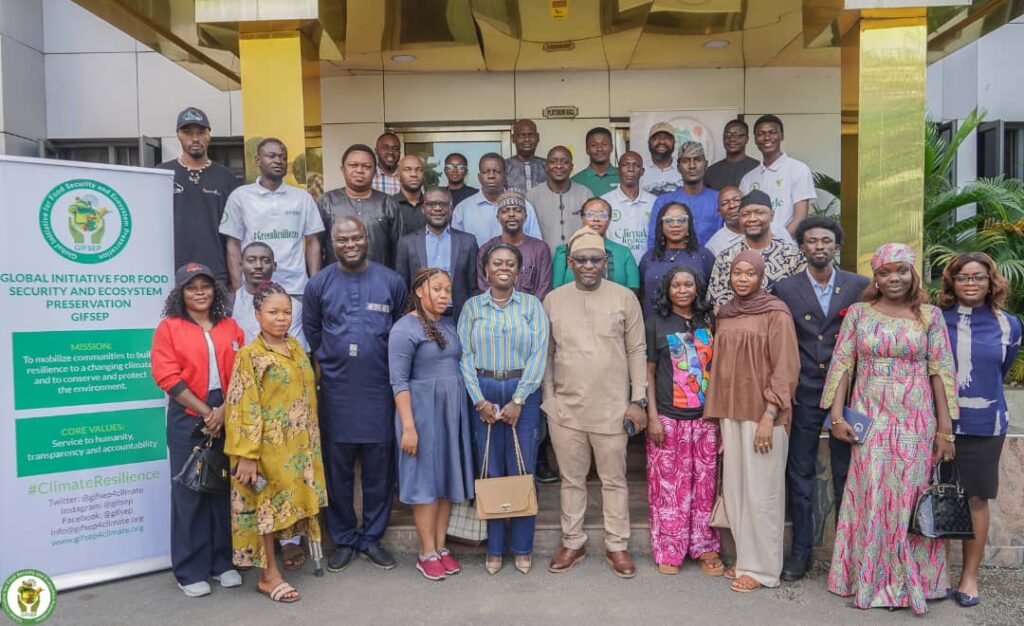The Global Initiative for Food Security and Ecosystem Preservation (GIFSEP) has urged the National Assembly to swiftly pass the Environmental, Social and Health Impact Assessment (ESHIA) Bill, 2025, to enhance environmental protection in Nigeria.
The Executive Director, Global Initiative for Food Security and Ecosystem Preservation (GIFSEP), David Terungwa, made the call in his address at a media workshop on climate adaptation held in Abuja.
He noted that this landmark legislation aims to replace the outdated Environmental Impact Assessment (EIA) Act of 1992, providing a more comprehensive framework for safeguarding Nigeria’s environment, social systems, and public health.
“The Environmental, Social and Health Impact Assessment (ESHIA) Bill, 2025, is a landmark piece of legislation designed to replace the outdated Environmental Impact Assessment (EIA) Act of 2004.
It provides a more comprehensive, participatory, and enforceable framework for safeguarding Nigeria’s environment, social systems, and public health in the face of growing industrial activities and global developmental realities.
He, however, stressed that in an age where sustainability is becoming increasingly paramount, the importance of Environmental, Social, and Health Impact Assessments (ESHIA) can not be understated.
“These assessments serve as critical tools for evaluating the potential implications of projects, policies, and programs on the environment, society, and public health”
The ESHIA Bill 2025 is not just an environmental law; it is a centred, rights-based and development-oriented framework that emphasises public participation, ensures strong enforcement, introduces new oversight bodies and imposes strict penalties for violators, aligning with global best practices.
“CSOs must stand at the forefront of pushing for its enactment to secure Nigeria’s future.” He urged.
Similarly, Gloria Agema of the Gee Foundation said Nigeria’s development approach often sidelines the very people it is meant to serve. She pointed to the culture of wasteful projects executed without scrutiny, particularly the construction of flood-prone estates.
“We see estates that are always underwater. If careful environmental and social assessments had been done, we would have known those areas were unsuitable.
Or, at the very least, mitigation plans would have been put in place. Instead, we build recklessly and then blame nature when the floods come. This bill is designed to put an end to that,” she stated.
She framed the debate around a fundamental question: “What do you want? That is the question communities continue to ask,” Noting that past consultations revealed a troubling disconnect between policymakers and the people. “If a project threatens people’s health, their livelihoods, or their cultural heritage, then it cannot be said to be development,” she stressed.
Agema lamented how powerful interests often override due process once money and political influence come into play, allowing projects to proceed despite environmental and social risks. Such practices, she said, have caused displacement, environmental damage, and long-term harm to communities.
Welcoming the pending Social and Health Impact Assessment Bill before the National Assembly, Agema described it as a forward-looking reform that integrates social and health safeguards into development planning.
She explained that the bill seeks to strengthen climate change adaptation, guarantee transparency, and ensure community participation. “This bill is designed to prevent harm before it happens, not just manage consequences afterwards,” she said.















